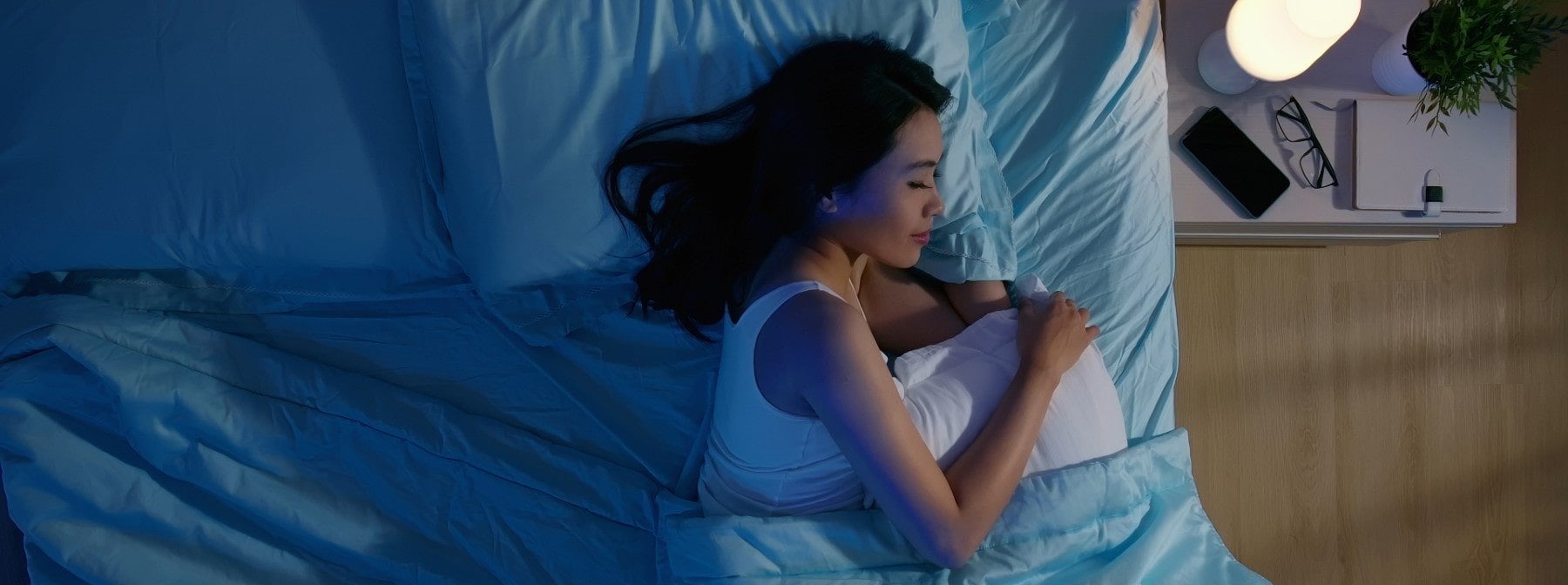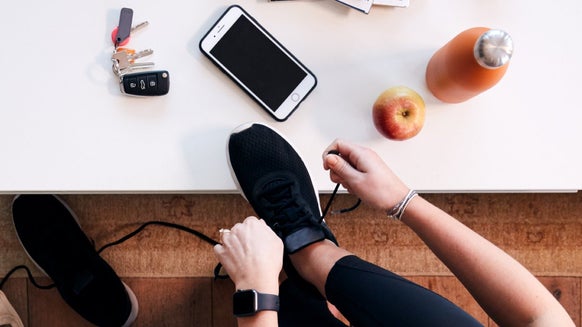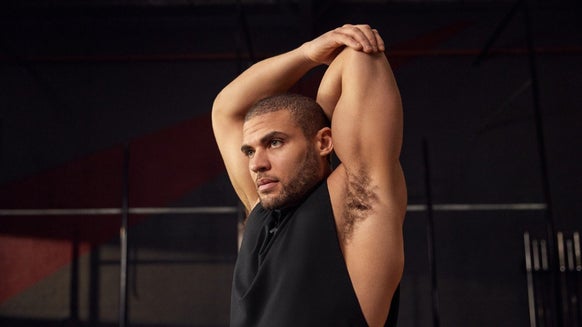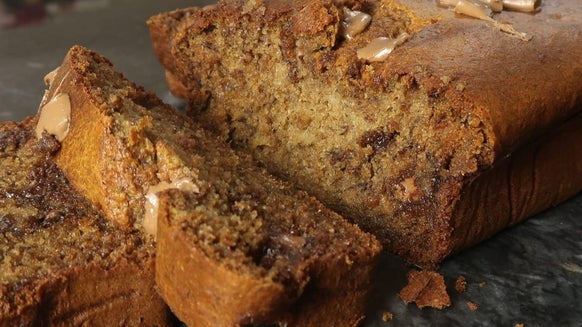5 Ways To Fall Asleep Faster

So many of us suffer from restless nights, tossing and turning. It feels like your mind is running at a thousand miles an hour and sleep seems impossible. We’ve all been there. But there are definitely things you can do to help fall asleep faster, and have better quality of sleep too.
We’ve narrowed it down to 5 tips that we hope will allow you to get a great sleep, and quick. Leaving you feeling refreshed and ready for the day.

1. Lower your temperature
Ever woken up with a headache and feeling groggy after falling asleep with your radiator on full blast? Or woken up in the middle of the night because you were freezing? There’s actually a reason for both of these things. A study in 2012 determined that temperature was a key factor in sleep.1 Your body temperature naturally decreases during sleep, and so having your room too hot can make this process a little more difficult; making it harder for you to drift off.2
On a similar note, having a warm bath or shower before bed can also help this process of lowering your body temp for sleep, as your body goes from a hot bath to a cool bed.3 Meaning you count way fewer sheep.
2. Get up at the same time every day (even on weekends!)
Studies have shown that keeping your wake-up time the same every day actually helps you fall asleep much easier when it comes to bedtime.5 Keeping this time within the same 15-minute window will build up your drive for sleep, and when it comes to bedtime, your body will be ready for sleep. But waking up an hour or two later than usual a couple of days a week can reduce this sleep drive, making those Z’s a little more difficult to catch.5
So, even when you’ve not had a good sleep, or had a bit of a later night than usual, it’s still best to get up at your usual time.
3. Exercise earlier in the day
Regular exercise is a great habit to get into, and it can often lead to better sleep. Exercises like running boost levels of serotonin, or “the feel-good hormone”, a hormone that also plays a role in regulating your circadian rhythm.6 So regular exercise can definitely aid your sleep.
However, it’s important to remember that some people find that exercising late at night only an hour or two before bed can disrupt their sleep cycle, and doesn’t allow you to have a proper period of wind down before bed. So, it’s probably best to stick to an early morning or afternoon workout if you can, but try out a few options to find what works best for you.
4. Limit screen exposure
We all love our screens, and they do have a lot of benefits to our lives, but when it comes to bedtime, they might be your worst enemy. The screens on our devices expose us to blue light, which can “wake up” the brain, and deters proper relaxation. As well as the fact that we can get distracted and end up sleeping much later than we had intended.
If you can, try to do something to wind down other than scrolling. Some of the best wind down exercises are reading a book, meditating, listening to music or a podcast. This allows your mind to begin to switch off, promoting optimum sleepiness, quicker.
5. Create the right environment
It’s time to take on board the phrase “tidy room, tidy mind”. Keeping your bedroom tidy can help you fall asleep much easier. A tidy room means one less thing for your brain to think or worry about, and gives you a comfortable, calm environment to sleep in. Lighting also plays a key factor in inducing sleepiness.
Calm lighting like a candle (although make sure you remember to blow it out before you sleep!), or just making sure to use a dim lamp or fairy lights can really help set the conditions for sleep. It makes it much easier for your eyes to start to feel heavy, so when it actually comes to the time to fall asleep, it happens much quicker.

Take Home Message
Falling asleep can be one of the most difficult tasks even though it seems so simple, but the good news is there are definitely things you can do to make it a little bit easier. Make sure to create a comfortable environment, try to keep your wake-up time the same each day, limit your screen time, keep your bedroom cool, and get in regular exercise are some of the most important factors.
Hopefully now you’ve got some tools to get better sleep, so go ahead and catch some Z’s.
READ THESE NEXT:

- Okamoto-Mizuno K, Mizuno K. Effects of thermal environment on sleep and circadian rhythm. JPhysiol Anthropol. 2012;31(1):14. Published 2012 May 31. doi:10.1186/1880-6805-31-14 https://www.ncbi.nlm.nih.gov/pmc/articles/PMC3427038/
- Cleveland Clinic, “What is the ideal sleeping temperature for my bedroom”, Published 2018 November 8. https://health.clevelandclinic.org/what-is-the-ideal-sleeping-temperature-for-my-bedroom/
- HaghayeghS, Khoshnevis S, Smolensky MH, Diller KR, Castriotta RJ. Before-bedtime passive body heating by warm shower or bath to improve sleep: A systematic review and meta-analysis. Sleep Med Rev. 2019;46:124-135. doi:10.1016/j.smrv.2019.04.008 https://pubmed.ncbi.nlm.nih.gov/31102877/
- Goel N, Basner M, Rao H, Dinges DF. Circadian rhythms, sleep deprivation, and human performance. Prog MolBiol Transl Sci. 2013;119:155-190. doi:10.1016/B978-0-12-396971-2.00007-5 https://www.ncbi.nlm.nih.gov/pmc/articles/PMC3963479/
- SateiaMJ, Buysse DJ, Krystal AD, Neubauer DN, Heald JL. Clinical practice guideline for the pharmacologic treatment of chronic insomnia in adults: an American Academy of Sleep Medicine clinical practice guideline. J Clin Sleep Med. 2017;13(2):307–349. https://aasm.org/resources/clinicalguidelines/040515.pdf







